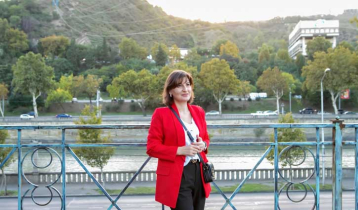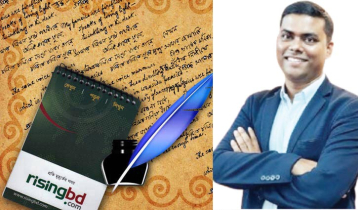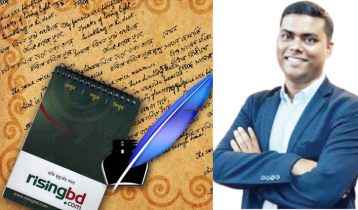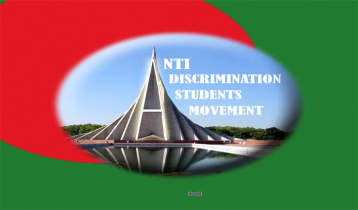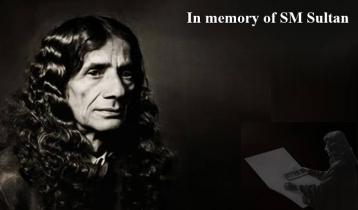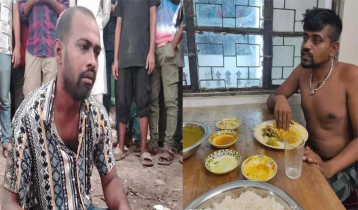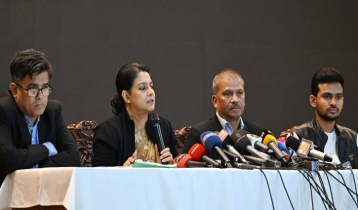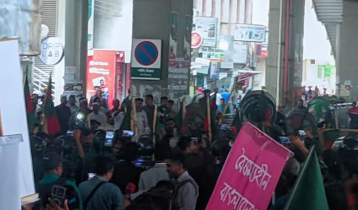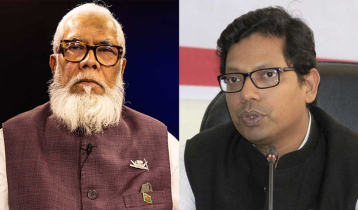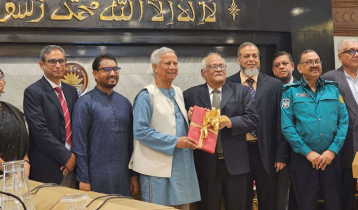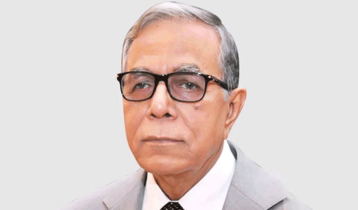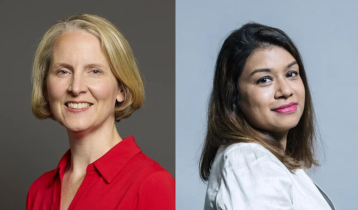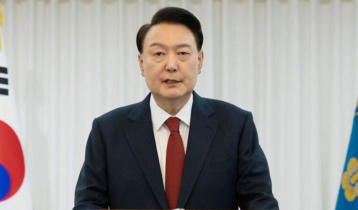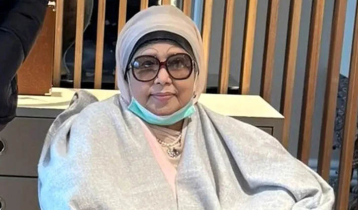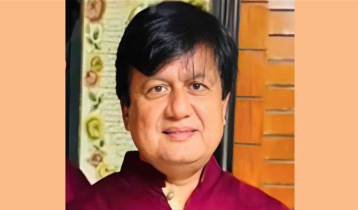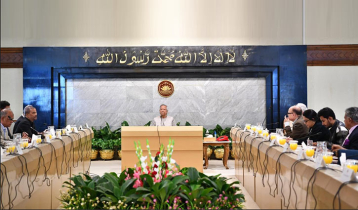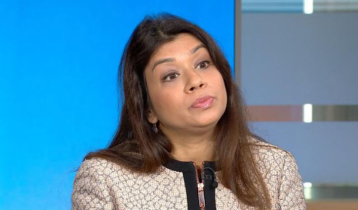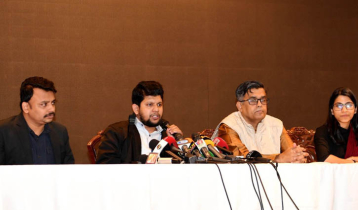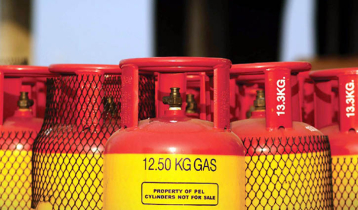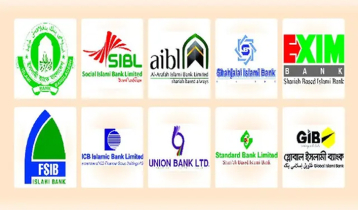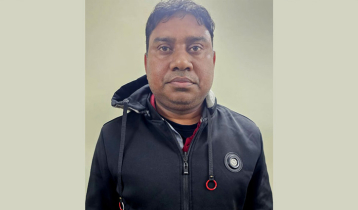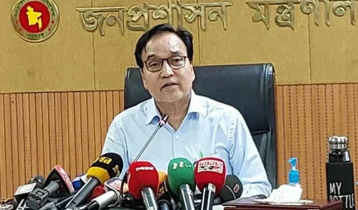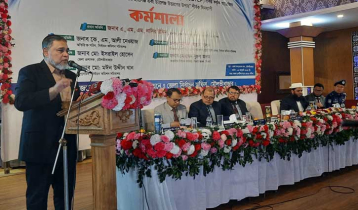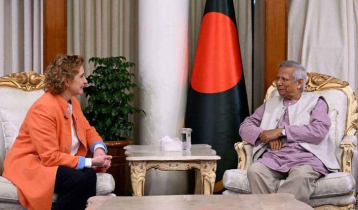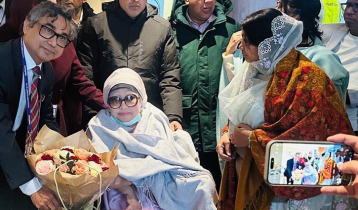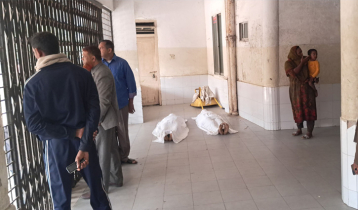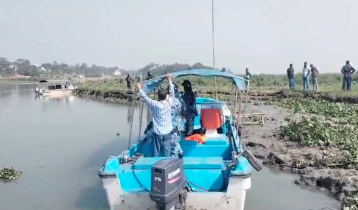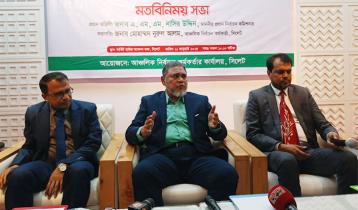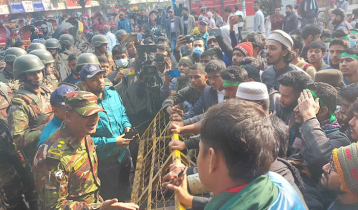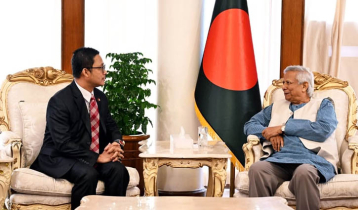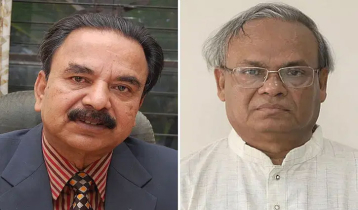We need mother & child-centered holistic approach budget
Md Manzurul Alam || risingbd.com
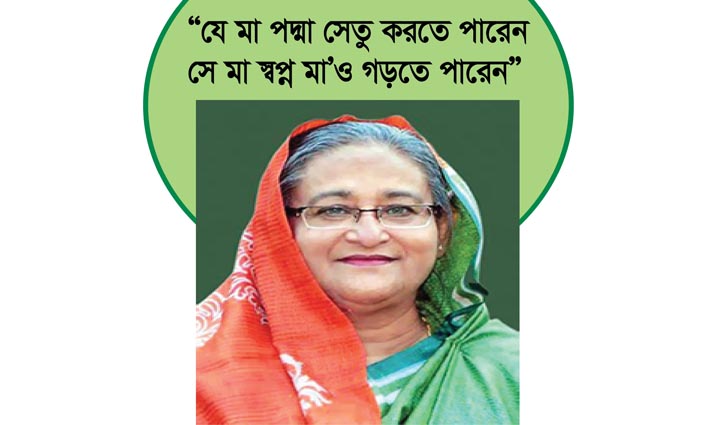
Father of the Nation Bangabandhu Sheikh Mujibur Rahman expressed his vision while addressing the first ever national literature conference in post-independence Bangladesh organised by Bangla Academy on its premises on 14 February in 1974. He stated “We need golden people to build golden Bangladesh”.
From the perspective, Bangabandhu daughter Prime Minister Sheikh Hasina realized the concept of maternity allowance program that can help poor mothers to give birth to healthy babies and make them as perfect human.
Taking the idealistic call of Bangabandhu as inspiration, the government headed by Prime Minister Sheikh Hasina launched SAPNA (Social Assistance Program for Non-Asseters) Maa Project, an integrated social safety net program under which allowance and other assistants are given to poor mothers with a view to maintaining a good maternity management and eradicating poverty. As a result, mothers designated Sheikh Hasina as the ‘SAPNA Maa Rani’ and expressed their high confidence “The Mother who can construct Padma Bridge, that Mother can build SAPNA Maa too”.
Seeing the success of the maternity allowance program and considering the comprehensive long-term gain of the nation, a project proposal has been submitted to the Ministry of Women and Children Affairs by Infrastructure Investment Facilitation Company (IIFC), an enterprise of ERD of Ministry of Finance, seeking an allocation of Tk 794.41 crore in the 2023-24 budget with a view to ‘ending poverty’ linking UN SDG-1. The project has been named ‘Maa & Sishu Sohayata Kormosuchi Vittick SAPNA Package’ that will cover 40,000 mothers in 100 upazillas of 40 districts.
The SAPNA Package, the holistic social safety net program centering bottom lining mothers, includes five basic needs like 1. Health, nutrition and birth control card. 2. Education and cultural card 3. Housing and sanitation 4. Livelihood income generating inputs 5. Savings and environment plus.
It can be here mentioned that Development Organization of the Rural Poor (DORP) took the first step to implement the maternity allowance program in the country. On the International Mother’s Day in 2005, DROP started to give maternity allowance identifying 100 poor mothers.
After many efforts and applications, the maternity allowance program was officially launched by the organization in the fiscal year of 2007-08.
In two phases, DORP implemented a maternity allowance project from 2009 to 2011 with the patronization of Spain's Queen HM Sofia and financial support of the Spanish Agency of International Co-operation for Development (AECID). Under the project, about 1000 mothers in five upazilas were benefited.
In 2015-16, the Department of Women’s Affairs under the Ministry of Women and Children Affairs implemented the ‘dream package’ as a pilot project with 700 mothers in 10 upazilas-Mujibnagar, Tungipara, Chatkhil, Kaliganj (Gazipur), Sreemongol, Ramgoti, Doulotkhan, Badolgachi, Ulipur and Singra. Under the project, mothers got allowance from pregnancy period to breastfeeding time of 24 months.
Seeing the success of the maternity allowance program, the present government under the leadership of Prime Minister Sheikh Hasina has extended the maternity allowance project ‘Mother and Child Assistance Program’ increasing the period to 4 years and monthly allowance to Tk 800 per month benefitting 12 lakhs of pregnant mothers throughout the country. On an average, about 100 mothers get this allowance from each union.
Under the maternity allowance program, selected mothers get maternity allowance for their nutritious food, resting and breastfeeding. It is noteworthy that a house with a sanitary latrine is given to each. Necessary materials are provided so that the women can earn about Tk 30,000 in a bid to eliminate poverty.
It is learnt that this project is also playing an important role in preventing child marriage, divorce and dowry. It is also encouraging them to register their marriage, birth of their children and take family planning ways.
Under the project, the women are offered training on different issues including knowledge on hygiene, care for pregnant and post-natal mothers, family planning, sanitation, drinking and use of safe water, use of hygienic latrines, overall development of the family, cultivation of vegetables in home yards and role of women in their families. Women also know about fish, poultry and duck farming, cattle rearing and labour market. It provides each of them with livelihood materials such as livestock, rickshaw van, small business and tailoring machine, etc. so that they can earn money to sustain their livelihood as a part of social empowerment for women.
There are seven conditions for receiving the allowance and these are 1. One time during the first or second pregnancy, 2. Age must be at least 20 years or above, 3. Total monthly income should be less than Tk 1500, 4. A female person should be main earner of a family, 5. She may be a poor disabled mother, 6. The family has only homestead or lives in other's places, and 7. The family has no any farmland, pond for fish farming or any livestock.
It is learnt that by applying the training knowledge, members of SAPNA Maa Project have found ways to eradicate poverty.
Employees of concerned Upazila/Union health family welfare bodies, Union Parishad and Upazila Parishad prepare the list after scrutinizing.
The Ministry of Women and Child Affairs’ IMED, BIDS, Bangladesh Rural Development Academy (Cumilla), Regional Rural Development Academy (Bogura), PPRC (Power and Participatory Research Center) and Canadian Mr. Jetha monitored and evaluated the activities of maternity allowance program. They have appreciated the activities and recommended for expansion of the program.
Many evaluations, interviews and reports with mothers’ expression and opinions have been published in media. An evaluation of the Department of Women Affairs’ shows the project has succeeded as a holistic development approach. As a poverty alleviation model, it is also low-cost, self-propelling, self-sustain and self-reliant. It is also very significant with the UN SDG agenda no. 1‘Ending Poverty’.
Very recently, Prof. Dr. Sankar Kumar Sanyal, president of Nikhil Bharat Harijan Sevak Sangh founded by Mahatma Gandhi in 1932, visited the maternity allowance program with a team of journals at Bahadursadi union in Kaliganj upazilla of Gazipur district.
He passed a night at a village and visited many houses of beneficiary mothers. Later, he joined a discussion and some other programs where he appreciated the different activities of the project.
Dr. Sankar Kumar Sanyal said, “I visited the houses of the SAPNA Package mothers, witnessed through my own eyes their socio-economic development and talked to some benefitted mothers and others”.
“I was utterly surprised to learn that those who received all the above mentioned facilities did not demand any other supports but requested to extend similar support to other to be pregnant mothers who are in distress.”, he mentioned.
“This is an example for all other people, who are enjoying a high social stature are demanding for more and more for themselves, which is endless. These mothers who were so economically weak have such small demands and accept only the basic rights inputs of this project. Mother is gift of the Almighty’ and development should start from the womb of the bottom lining mothers”, he mentioned.
He joined the discussion organized by DORP in Dhaka where Dr. Abdul Mannan Chowdhury, vice-chancellor of World University of Bangladesh, presided over it. Dr Md Abdus Shahid MP, Ex-Chief Whip of Jatiya Sangsad, Dr Atiur Rahman, noted economist and former Bangladesh Bank governor, AHM Nouman, founder of DORP, and other social eminent leaders participated in the discussion. Indian yoga queen Ms Shweta Varpe virtually joined it from Mumbai.
In the discussion, a total of 11 proposals or demands were placed for inclusion in the program for these mothers. Some of the proposals are-setting up a data bank for the maternity allowance beneficiaries, increasing allowance period from 4 years to 5 years, allocating about Tk two lakh for every mother in the package, bringing about one crore mothers in 20 years, providing women with health, nutrition, birth registration, education, cultural and entertainment cards, providing necessary materials for self-employment, saving scope, etc.
The experts undercrossed the need for continuation and expansion of the maternity allowance program in a bid to build ‘Sonar Bangla’ dreamt by Father of the Nation Bangabandhu Sheikh Mujibur Rahman. They appealed to Prime Minister Sheikh Hasina for enough allocation in the upcoming budget. The investment has no loss rather that it will attain a big long-term gain and will a play a role in ending poverty, which is the top priority of the present government, they opined.
Dhaka/Mukul

